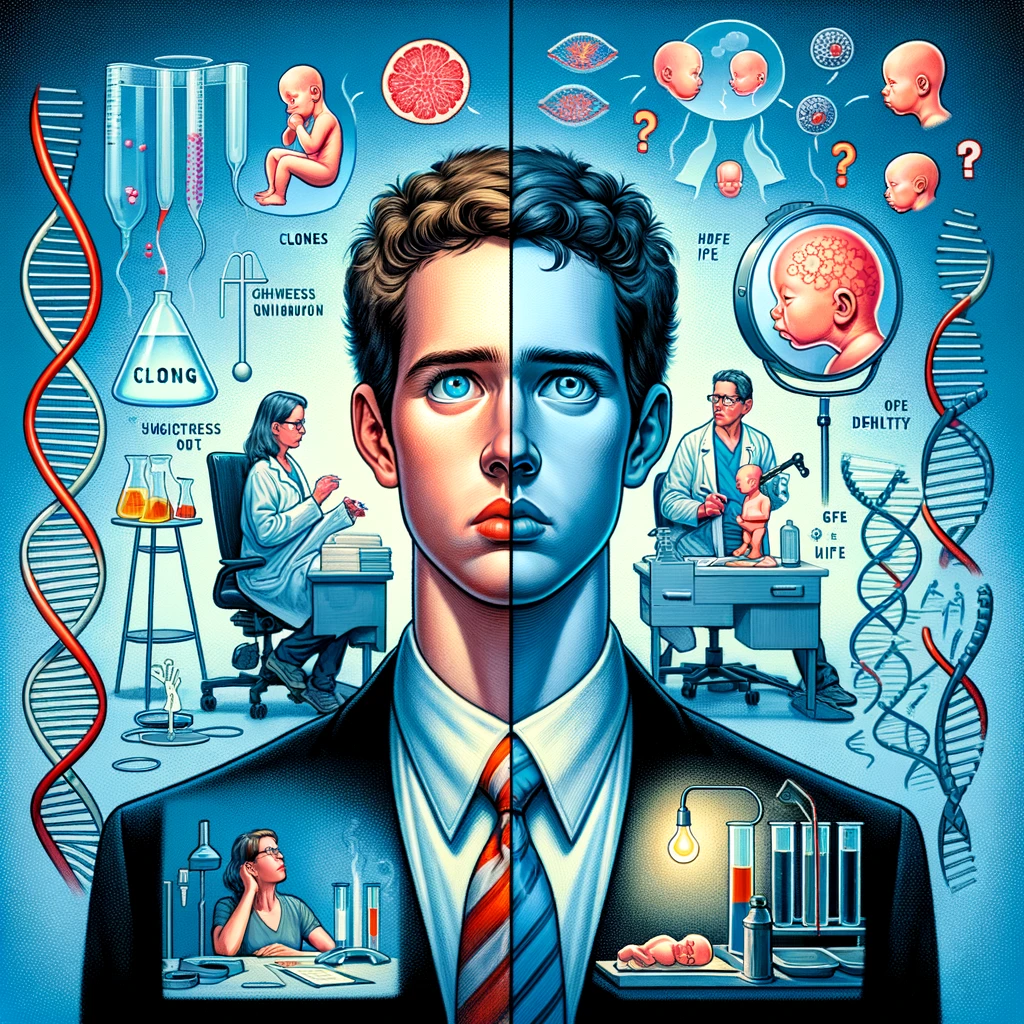
Exploring the Ethical Implications of Cloning: Identity, Safety, and Societal Impact

Discuss the ethical implications of cloning.
The ethical implications of cloning, particularly in the context of reproductive cloning (creating a genetic duplicate of an organism) and therapeutic cloning (creating cloned cells for medical treatment), are complex and multifaceted. These ethical considerations vary widely across cultures, religions, and legal systems, reflecting diverse views on the sanctity of life, individuality, and the natural order. Here’s a closer look at some of the key ethical issues associated with cloning:
1. Human Dignity and Identity
- Individuality and Uniqueness: Cloning raises concerns about diminishing the uniqueness of individuals. The prospect of creating genetically identical copies of humans challenges our notions of personal identity and individuality.
- Commodification: There’s a fear that cloning could lead to the commodification of human life, where cloned individuals are valued not for their unique identities but as means to an end, whether for spare parts, disease research, or replacement of deceased loved ones.
2. Playing God and Natural Order
- Interference with Nature: Some argue that cloning represents an overreach of human technology into natural processes, playing God with life’s creation and disturbing the natural order of birth, life, and death.
- Ethical Boundaries of Science: Cloning forces society to reconsider the ethical boundaries of scientific research. It prompts the question of just because we can do something, does it mean we should?
3. Potential for Abuse
- Eugenics: The technology could be misused for eugenics, selectively cloning individuals with desired traits, which raises concerns about creating inequalities and perpetuating biases towards certain genetic characteristics.
- Exploitation and Inequality: There’s a risk of exploitation in obtaining genetic material and surrogate mothers for cloning, potentially exacerbating social and economic inequalities.
4. Safety Concerns
- Health Risks: The current state of cloning technology is not without risks. Cloned animals have shown higher rates of abnormalities, health issues, and early death, raising significant concerns about the safety of cloning humans.
- Unknown Psychological Effects: The psychological impact on cloned individuals regarding their origin and identity is unknown and could pose unforeseen challenges.
5. Family and Societal Dynamics
- Impact on Family Structures: Cloning could alter traditional concepts of family and kinship, affecting parental roles and relationships within families formed through cloning.
- Societal Acceptance: Cloned individuals might face discrimination or stigmatization, affecting their social integration and mental health.
6. Legal and Regulatory Issues
- Lack of Comprehensive Legislation: The rapid advancement in cloning technology has outpaced the development of legal and ethical guidelines, leading to a regulatory vacuum or patchwork regulations that vary significantly across jurisdictions.
7. Moral Status and Rights of Clones
- Personhood and Rights: There’s a debate over the moral and legal status of clones, particularly in therapeutic cloning where cloned embryos are created and destroyed for medical research. Determining the rights and personhood of clones is a contentious ethical issue.
In summary, the ethical implications of cloning involve a wide array of considerations from the sanctity of human life and individual rights to the broader societal, legal, and environmental impacts. A balanced approach that respects ethical principles, safeguards human dignity, and considers the long-term consequences of cloning technologies is essential for navigating these complex issues.